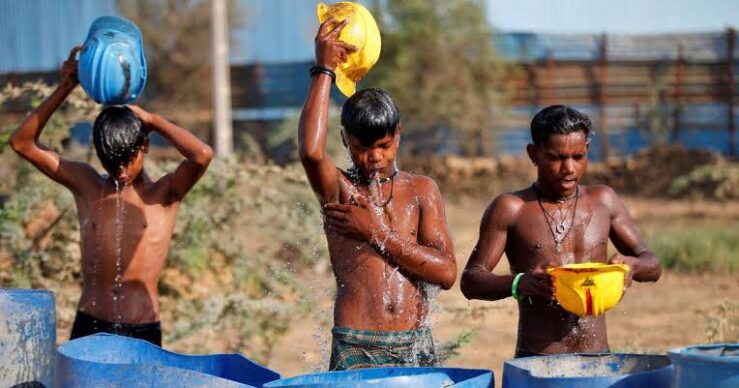The heatwave has grappled India and the northern regions of the country have already resulted in several people being ill due to the imposing effects of heat. Those who work without air conditioning in gruelling environments are feeling the most of this excessive heat. One could avoid being struck by heatwave with a few easy to follow tips. Below are all these methods.

How to Combat Heatwave?
- Drink adequate water in a day at regular intervals to avoid getting dehydrated.
- Wear loose clothes.
- Move to a cooler place if your are feeling uneasy.
- Place a water-soaked sponge or cloth on your forehead. Furthermore, apply an ice pack to your forehead, neck, and wrists to help cool your body.
- Do not try to force feed water to someone who is unconscious. Instead take them to the nearest hospital.
Signs of Heatstroke That You Should Notice
- Refusing food or not having the will to eat
- Being irritated
- Decreasing urine quantity
- Dry mouth or lack of tears
- Seizures
- Abnormal bleeding
- Hot, red and dry skin
- Increased body temperature
- Delirium
- Severe headache
- Dizziness, anxiety and lightheadedness
- Increased heartbeat
- Vomiting & nausea
What Not Do During this Heatwave
During a heatwave, you should prioritize your health and safety by avoiding certain activities. For starters, avoid overexertion outside, especially during the hottest hours of the day. Strenuous activities can result in heat exhaustion or even heatstroke. To prevent sunburn and heat-related illnesses, avoid prolonged exposure to direct sunlight without protective clothing such as hats, sunglasses, and sunscreen.
Also read: 5 Brain Boosting Juices that will Keep Your Mind Young even in Old Age
It’s also important to stay hydrated by drinking plenty of water throughout the day and avoiding excessive alcohol and caffeine consumption, which can lead to dehydration. Never leave pets or children in parked cars, even for a short time, because temperatures can quickly rise to dangerous levels. Finally, if possible, stay indoors in air-conditioned or well-ventilated spaces to avoid the heat and reduce the risk of heart-related health problems.


